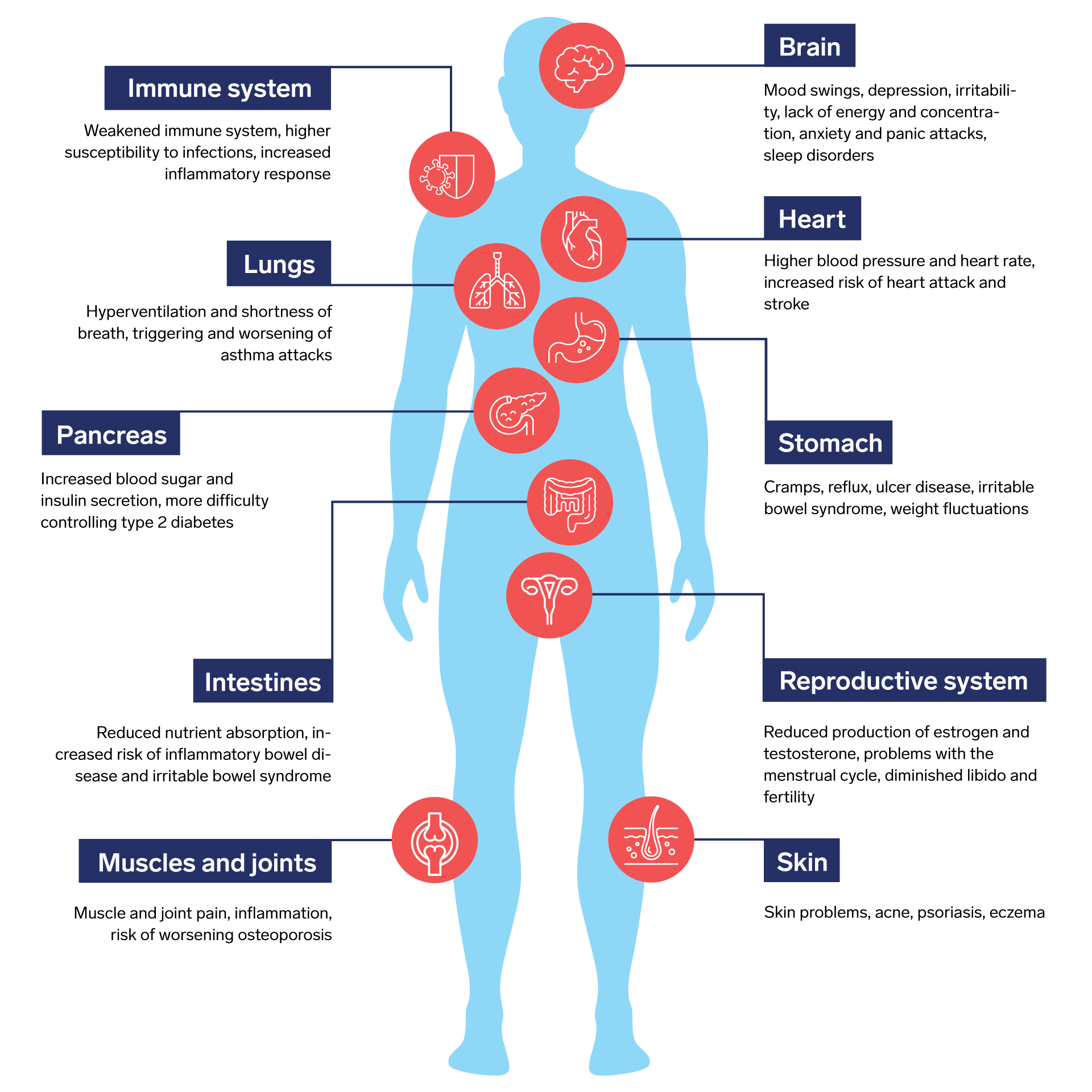Specialist Advice — 8 minutes
Consequences of stress on the body

Stress is a normal and necessary response of the body to aggressions of all kinds, whether they are physical (e.g. effects of work or household duties, physical hazards) or metabolic (e.g. hypoglycemia, illnesses and infections, surgery, burns, etc.).
When we face a physical danger such as aggression, it is the acute response caused by catecholamines that enables us to fight or flee.
When we face a chronic aggression such as a health problem, it is the secretion of other hormones such as cortisol that enables us to resist the illness until it is under control.
While stress is a necessary response, in the long term it can affect almost all the body’s functions and lead to numerous health problems.

Dr Nicolas Tétreault, PhD, CSPQ, FCAB
Medical Director, Laboratory and Innovation
LinkedInDr Nicolas Tétreault, Clinical Biochemist Medical and Innovation Director, Biron Groupe Santé








